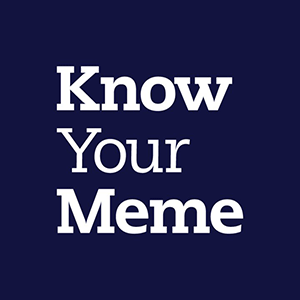We all live on the Internet, so we better figure out what to do here. Welcome to another episode of my series on how to make this a better place.
Memes are bad. On this I hope we can all agree, even those of us—of you—who like memes, who have made and continue to make memes, who click 👍 and ❤️ and 🤣 when they infiltrate your feeds. Memes may be clever. They may be amusing or obscure or dumbly hilarious. But they are never good. In fact, they are always bad.
In a slightly earlier era of the Internet, memes were neither good nor bad. They were a fascinating phenomenon that helped us understand how concepts were understood and transmitted. That’s because memes were an entirely different thing: not today’s “familiar image(s) + text that plays on the image” formula but an abstraction—the idea of an idea. Richard Dawkins, the really annoying atheist, gets credit for formalizing the concept, which he defined as “a unit of cultural transmission.” You could apply the word meme to any idea, phrase, song snippet, or image that caught on and spread easily—one might say virally—through the population. Dawkins was writing in 1976, a full decade before the creation of the Graphics Interchange Format led to our world of sloppy GIFs adorned with idiotic slogans.
The problem with memes as we know them today is not just that they’re dumb—your average dad joke is a thousand times sharper, more challenging, and more insightful. No, the issue is that modern-day memes obscure and degrade information rather than merely transmit it. I’m thinking of anything with statistics in it but no visible source. I’m thinking in particular of Twitter and text-message screencaps that have been copy-pasted so many times they’ve gone grainy and VGA. I’m thinking of obvious Photoshop forgeries that pretend like we don’t notice them. The memes of today revel in their detachment from reality, in the superficial sheen of familiarity, beneath which lies nothing worth communicating.
So here are the rules:
Don’t make memes. There are already a million of them out there, and and most likely one already captures what you’re hoping to communicate. Go see if you can find it! Then…
Don’t share memes. Yes, including the one you just looked up. Memes don’t need you to spread them around—they’re going to survive just fine without you. Did you find something funny? Good! Let it amuse you. But you don’t need to let the rest of us know.
It’s okay to like memes. You are welcome to look at and giggle at memes. I give you permission! You can even click a reaction to them (but you don’t need to). Memes exist, and we don’t need to avert our eyes and pretend they don’t. But we also don’t need to give them more attention than they already take up.
GIF reactions are okay! Because these are more like speech, therefore more ephemeral, GIF reax—on Slack, Discord, text messaging, wherever—are not quite as poisonous as memes (which are more like writing, with its greater longevity).
In short:

You see how dumb this shit is?
To this, I want to add some corollary rules about sharing information online:
Whenever possible, use the Share functionality. The Internet can be really good at preserving the origins of all kinds of material, but if you copy-paste or screenshot, you risk losing the source—and losing my trust in its authenticity.
If you can’t Share, at least maximize the info. Make sure to copy-paste everything—the whole tweet, or the web page including the URL. Hell, use a bare-bones image editor to add the source in the corner of the pic. Some future copy-paster may cut it off, but at least you’ve done your part to make it traceable.
If you don’t know where it came from, don’t share it. Be skeptical of any image-based information you find around here. If it seems to have come from nowhere, leave it there.
No quotes. Assume all quotes, especially the inspirational ones, are made up. Never share them, either.
Look, I don’t really expect you, or anyone, to approach the Internet with this level of discipline. It’s a messy place, and we eke enjoyment out of it as best we can—yes, sometimes even by shitposting. But we do have an opportunity to make it a little neater, a little smarter, a little goddamn better, even if it’s just within the bubbles of our own social media circles. 🪨🪨🪨
It’s Good and I Like It: Know Your Meme
Just because you shouldn’t create or share memes doesn’t mean you can’t investigate their histories! The folks at Know Your Meme have been doing that for a very long time, and their database is unparalleled. Check it out next time a younger person sends you something you don’t understand.
Read Yesterday’s Attempt

I Love Snuff Films—and You Do, Too
This one is
trying.beehiiv.com/p/i-love-snuff-films-and-you-do-too


